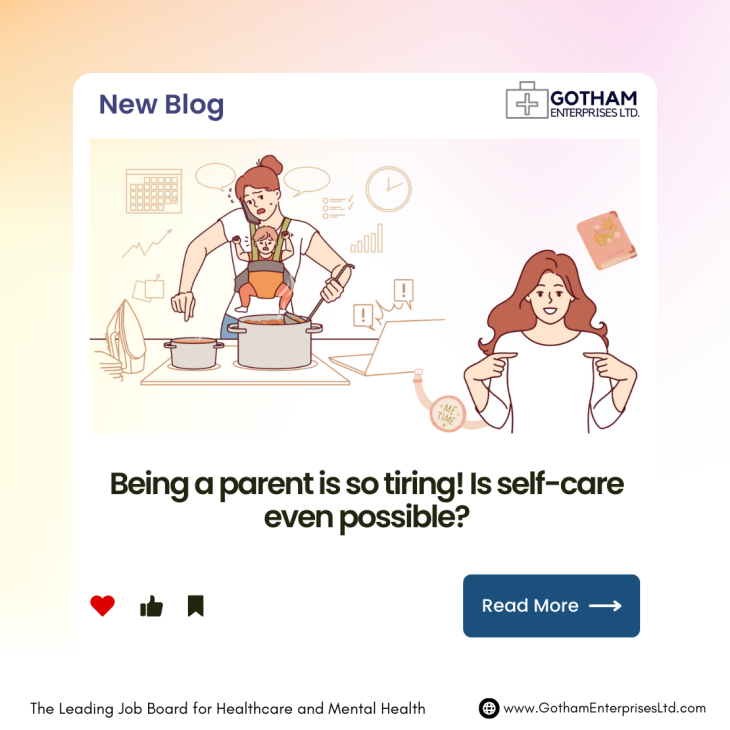Recent Posts
- I broke up with my partner, but now I am having doubts. Did I do it out of the right reasons or was I just being fearful?
- My Quick Temper Pushes People Away. What Do I Do To Manage My Anger?
- How does noise affect my mental health?
- I want to be a better problem solver. What is a step by step approach?
- Escapism. When is it healthy? When is it damaging?
Most Popular
Being a parent is so tiring! Is self-care even possible?

One general principle that can be applied in parenting is one heard often at a flight announcement. When oxygen masks drop, adults need to put on their own mask before helping small kids. Parenting is one privilege that comes with huge duties. Parents’ who do not apply this principle often run on a near empty tank of energy and parenting becomes a heavy chore.
Caring, loving, providing and enjoying parenting requires taking care of the carer and the provider, too!
According to an Australian study on parents in 2021, 1 in 4 parents did not practice self-care. But what is self-care? One can define it simply as a collection of activities and thoughts that help parents maintain health of body and of mind. This study found that how well parents practice self-care has a powerful effect over their mental and physical health.
Challenges in Parental Self-care
Mindset on taking care of self
One in three parents feel they focus too much on finding fault with their parenting techniques. Thinking that they are making mistakes or they are not hitting their targets based on the standards they put on themselves leads to fatigue. Feeling too tired then stops many parents from finding ways for self-care.
Time pressure
Parents who feel they don’t have enough time to do their parenting tasks also often lack time for self-care. Surveys show that parents of children below five years old and parents from culturally diverse backgrounds experience time pressure.
Compared to fathers, mothers are reported to be less inclined to add self care activity in their day because of fatigue and increased feelings of self-criticism.
Signs of parental fatigue and lack of self-care
- Increasing conflict between partners
- Rise in disagreements about roles in the home and how labor is divided
- Decrease in activities that used to be enjoyed in the relationship such as physical intimacy and dates
Benefits of Parental Self-care: Mindset shift
Increase in confidence
Surveys show that parents who have regular self-care feel confident in their roles as parents. Their confidence leads to decrease in fault-finding towards their parenting. They feel that their skills are enough to do their tasks, and they can concentrate more on the tasks than be worried.
Increase in enjoyment
Self-care activities in parents make parents enjoy their parenting tasks. They tend to view them as fulfilling and less challenging.
Practical Self-care activities for Parents
- Create a healthier sleep routine.
- Set a habit of sleeping at the same hour nightly with your children to ensure that the whole family gets enough rest for the next day.
- Avoid becoming too tired before going to bed to put the body in a mood to rest at night.
- Take a warm shower or quick warm bath before bed to relax the body.
- Avoid food that stimulates the brain such as coffee or chocolates at night.
- Set aside some “me-time” where you can do a hobby or an activity that refreshes your energy.
- Your “me time” can be a physical activity like exercise or a sport. Being physically active has shown to release happy hormones, gets your circulation going, increases oxygenation to the brain and extremities and generally creates a bright mood.
- Get some sunshine. It helps the body use up our Vitamin D and this vitamin has a big role to play in our energy levels and immunity.
- A hobby can also be crafts, arts, reading, watching a movie or even just getting a massage.
- Have conversations with your partner and with a mental health support network.
- Having a good talk with your partner opens up a chance for both of you to be kind to one another especially in this trying time.
- Talking with your family counselor about your family concerns is an avenue to learn self-compassion tips.
Confident and happy parents are definitely not perfect parents, but they are those who find time to take care of themselves, for their good and for the good of their families. And when parents are healthy, the children win too!







Comments